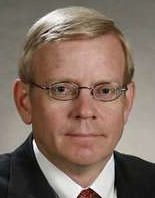Industry Insights
June 21, 2019
Torrey: A New 'Intermediary' Theory of Joint Employment
- National
- - 0 shares
In a renowned 2015 Pennsylvania case, a Philadelphia franchisee of the fast-food chain Saladworks had failed (illegally) to insure, and its employee, having sustained an accident, was unable to secure workers' compensation benefits.

David B. Torrey
He sought, as a result, to cast the franchisor as his "statutory" employer. While the Pennsylvania Appeal Board accepted that argument and imposed such liability, the Commonwealth Court reversed.
The court declared, with some irony, that Saladworks, as franchisor, “is not in the restaurant business or the business of selling salads.”
I was intrigued by the dispute (not to mention the court's ironic, and perhaps unsatisfactory, declaration), especially in light of Dean Weil's characterization in his illuminating 2014 book, of franchising as often reflecting a type of "fissuring of the workplace" that leaves highly leveraged those at the bottom of the employment hierarchy.
The injured worker in the Gaudioso/Saladworks case seemed to be such a person.
In a new article, the author, like the injured worker's lawyer in Gaudioso, is interested in a legal argument that would cast what she calls “the all-powerful brands — the franchisors” as employers — in her case with responsibilities under the Fair Labor Standards and National Labor Relations acts. She asserts, in this regard, that “franchisor brands, not their franchisees, set industry-wide standards and, thus, have the ability to offset rising wage inequality and improve working conditions.”
The author, a professor at Cornell Law School, has studied 44 contracts between fast-food franchisors and their franchisees. She asserts that her “contractual analysis reveals a new theory of joint employment via franchisor influence over franchisees’ managers. Unlike prior foci on franchisor-franchise relations, and franchisor-crew member relations, [I bring] a new party to light: franchisees’ supervisorial managers.”
She concludes, “In sum, the theory developed from this rare dataset postulates why some Goliaths of fast food may indeed be ‘employers’ with legal obligations to the workers in their franchised restaurants.”
David B. Torrey is adjunct professor of law at the University of Pittsburgh School of Law and a workers’ compensation judge with the Pennsylvania Department of Labor & Industry. This entry is republished from the Workers' Compensation Law Professors blog, with permission.
Advertisements
Columns
- Lang: Proposed LC 5710 Fees Guidelines 02/20/26
- Barthel: Even Super Bowl Winners May Lose in Comp 02/18/26
- CAAA: Misuse, Misrepresentation of Interpreter Credentials Grow in Comp 02/12/26
- Langham: On Self-Insurance 02/06/26
- Paduda: Catastrophic Claims Are Changing 02/04/26
- Bair: Leaning Into Liens 02/02/26
- Barthel: How Hard Can Intoxication Defense Be? 01/30/26
- Geaney: What Questions Should Permanency Evaluators Ask Petitioners? 01/28/26
- Paduda: Health Care Is Missing the Point 01/26/26
- Kamin: AI Citations Present Cautionary Tale for Attorneys 01/20/26
- Barthel: Is Rodriguez Worth It? 01/16/26
- Tolentino: Keep Your Friends Close, but Your Enemies Closer 01/14/26
- Young: The Top 2025 California Workers' Comp Developments 01/09/26
- Langham: Not Always an Accident 01/07/26
- Barthel: Is SIBTF a Great Idea Gone Awry? 01/05/26
- CAAA: New Comp Laws Take Effect in 2026 12/31/25
- Opalisky: The Ongoing War Over State's Statutory Employer Doctrine 12/30/25
- Kamin: Our Top 10 Blogs of 2025 12/26/25
- Barthel: Are You an Employer, or Do You Use Independent Contractors? Can You Prove It? 12/24/25
- Barthel: Is Pot a Defense? Are You High? 12/22/25
Now Trending
- Workers' Compensation News
-
Calif.
Single-Payer Proposal Returns to…
Posted on Feb 17, 2026
-
Calif. Exclusivity
Bars Tort Claims for Asbestos…
Posted on Feb 19, 2026
-
Calif. CWCI:
Nonfatal Work Injuries, Illnesses
Returned to Pre-Pandemic Levels in…
Posted on Feb 17, 2026
-
Ohio Worker Gets
No Benefits for Conveyor Belt
Accident Due to Marijuana…
Posted on Feb 17, 2026
-
Wis. Agreed-Upon
Reform Bill Heading to…
Posted on Feb 18, 2026
-
Fla. Court:
Employer Didn't Rebut Heart-Lung…
Posted on Feb 20, 2026
-
Pa. Split Supreme
Court Cites Triable Issues in
Worker's Tort…
Posted on Feb 23, 2026
-
Mich. BCBS Selling
Work Comp Subsidiary AG…
Posted on Feb 17, 2026
-
Ntl. NCCI Opens
Registration for AIS…
Posted on Feb 18, 2026
-
Ntl. Regulators
Warn of…
Posted on Feb 17, 2026
Jobs
Upcoming Events
Feb 26, 2026
Permanent Disability Rating Bo
This AWCP program provides focused education on California permanent disability in workers’ compen …
Mar 3-4, 2026
Save The Date! WCRI’s 2026 Ann
Registration will open up in the coming months. We'll see you there! - Leading national workers' …
Mar 5-6, 2026
DWC’s 33rd Annual Educational
Register Now! 2026 conference topics: DWC Update AI with a Claims Focus Medical and Legal Ethics …
Social Media Links
c/o Business Insurance Holdings, Inc.
Greenwich, CT 06836


No Comments
Log in to post a comment